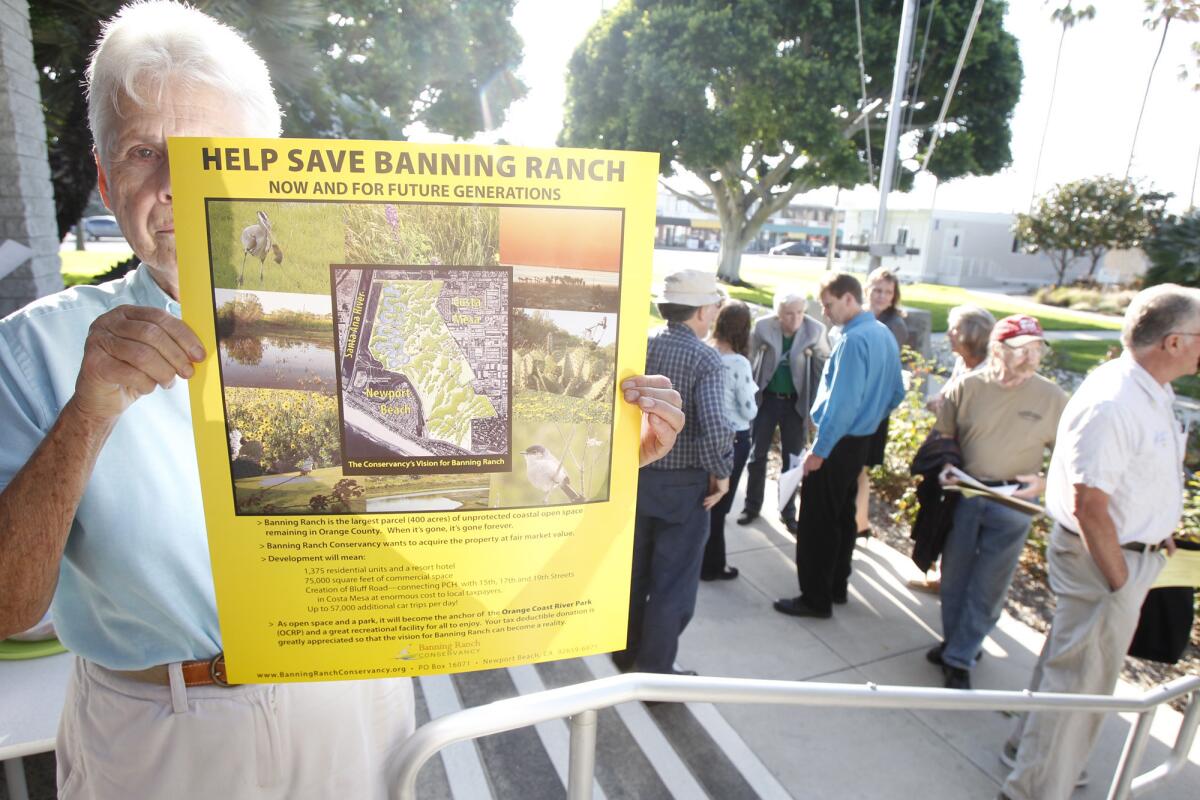Judge: Banning Ranch project violates city’s general plan

- Share via
Newport Beach violated its own general plan when it approved a 1,375-home residential and commercial development at the 400-acre Banning Ranch site, an Orange County Superior Court judge has ruled.
The city did not work closely enough with the Coastal Commission before council members voted 6 to 0 to approve the project in July 2012.
Banning Ranch Conservancy, an environmental nonprofit, sued the city two months after that vote, alleging Newport violated its own policies and that the environmental review of the development was flawed.
“In essence, we won the case,” said Steve Ray, executive director of the conservancy. “And the city will have to make a decision to how they want to proceed further.”
The conservancy has fought to keep the area natural, something voters indicated they wanted when they approved a 2006 amendment to the general plan prioritizing open space at Banning Ranch, Ray said.
According to last week’s ruling, Newport should have cooperated with the Coastal Commission “to identify those wetlands and habitats which will be preserved, restored or developed.”
“When the Coastal Commission offered to coordinate, offered to assist in identifying, the city rejected the offer and deferred the issue altogether,” Judge Robert Becking wrote on Nov. 21.
Becking, however, rejected the conservancy’s main complaint that the project’s environmental review left out key components about possibly sensitive habitats.
The ruling’s effect on the development — which includes a small hotel, commercial space and open area on 400 acres in west Newport — remains to be seen.
“The court’s decision reverses the city’s approval of the project,” the conservancy said in a statement posted to its website.
Newport’s attorney, however, argued that the ruling may be moot because the city is already in touch with the Coastal Commission, which must approve the project for it to proceed.
“We’re already working with Coastal staff,” City Atty. Aaron Harp said Friday.
But that coordination should have come earlier, according to the judge.
“So then, are we to go through the whole process of approving the [environmental impact report] without carrying out the policy of coordination to identify the wetlands and habitats to be restored, preserved or developed, and particularly without coordinating with the Coastal Commission to identify potential [environmentally sensitive habitat areas], only to get to the permit stage and have the project denied a permit?” he wrote.
That situation is exactly what the city’s policy was intended to avoid, according to the ruling.
The court could issue a judgment based on the ruling by the end of the year, according to Harp and Ray.